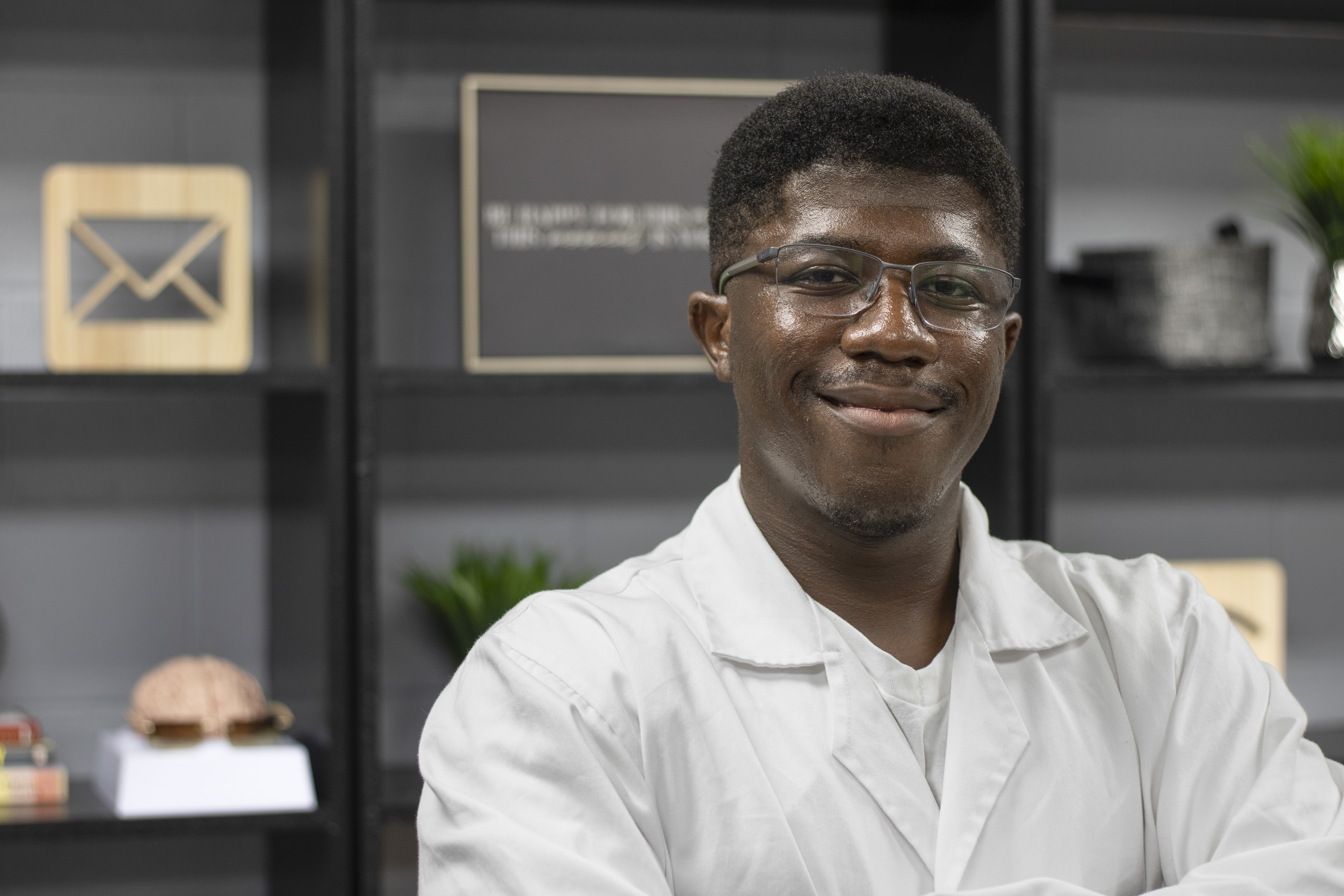Michigan State University is fortunate to have passionate educators who are committed to enhancing the experience of their students and who help to provide the best education possible.
The Graduate School is featuring some of these educators – graduate and postdoc educators – every month to share their unique stories and perspectives on what it means to be a dedicated educator, how they’ve overcome educational challenges, and the ways they have grown through their experiences.
For October 2023, we are featuring Antonio White, a graduate student in the neuroscience program. In his writeup, Antonio shares the lessons he’s learned in his journey, and the importance of being a part of different communities as an educator.
What does it mean to be an educator at a university?
To be an educator means to be a shepherd. A shepherd watches over the sheep making sure the sheep are well fed, protected, and cared for. An educator feeds students the knowledge of a particular subject, protects students from ignorance, and cares for the student’s wellbeing.
As an educator, I inform students of different opportunities and resources so that they are aware to make better decisions for themselves. During my graduate studies at Michigan State University, I have had the privilege facilitating students’ critical thinking skills that go beyond the classroom, offering students insight on how to navigate both undergraduate and graduate studies, and, most importantly, connecting with fellow students.

One way that a shepherd connects with the sheep is by spending time with them. If I am not doing dissertation research or professional development activities, I am spending time with students in meetings, classrooms, and social settings. I spend time with students to connect with them and build relationships with them, which helps me better understand how to communicate information to them to navigate their own lives, which motivates me to continue in life as an educator.
What challenges have you experienced and how have you grown from them?
Graduate school has presented challenges in various areas of my life. One area that has been particularly challenging is communication skills. Throughout graduate school, there have been instances during interactions with students, colleagues, family, friends, and advisors where verbal and nonverbal miscommunications occurred. These miscommunications sometimes led to misunderstandings, resulting in students completing assignments incorrectly, unspoken remarks, and anxious thoughts. These experiences left me feeling regretful. However, I am actively working to improve my skills in both nonverbal and verbal communication. I regularly ask the students I advise or teach if they have a clear understanding of the information I am conveying. I encourage students to share their perspectives so that I can better serve them. I am engaging in more honest conversations and sharing my experiences with my friends and family. I am also sharing my perspectives with colleagues and advisors while seeking to understand their viewpoints.
Another challenging aspect has been attempting to do and be everything all at once. Throughout graduate school, I have been actively involved in various capacities, such as my graduate program's council, the Michigan State University Black Graduate Student Association, and various professional activities. While participating in these activities has helped me feel connected to the university in many ways, it has also led to spreading myself too thin over time. I am addressing this by stepping back from activities that do not benefit me and lightening my load. This way, I can focus on excelling as an educator and scholar.
What value do you see in Teaching Professional Development?
Teaching Professional Development at Michigan State University has played a pivotal role in my journey as an aspiring teacher. I began teaching at Michigan State University in Fall 2020 as a teaching assistant in genetics. That semester was challenging for me as an educator; however, I had a phenomenal teaching team for the course that supported me throughout. Still passionate about teaching, I recognized the need to further develop my teaching skills. I sought out opportunities within Michigan State Graduate school.
I took classes, participated in several workshops, and participated in the Future Academic Scholars in Teaching and College Online Learning Academy Fellowship Programs. These classes, workshops, and fellowship programs have empowered me to pursue a career as a professor at a Historically Black College and University (HBCU). They provided me with foundational skills and techniques for effective teaching, enhancing my understanding of my role as an educator within the university.
I believe all educators should pursue professional development in teaching, not only to learn the skills of effective educators, but to comprehend their roles in facilitating belonging within their community. Additionally, these opportunities inspired me to develop a neuroscience educational podcast called The Nerve Podcast, now streaming on Apple Podcasts and Spotify.
What is one piece of advice you would give other graduate educators?
My biggest advice to other graduate educators is to be part of different communities. As educators, I think it is our responsibility to be a part of different communities for two primary reasons:
1) to better understand how to relate material to students.
2) to engage in meaningful conversations that lead to self-reflection on teaching and social practices.
Learning from the perspectives of others creates more awareness about life and fosters meaningful relationships that allow learning to take place. Engaging in meaningful conversations with students, peers, and advisors allows educators to think about how to maintain or improve skills necessary for teaching and life. Lastly, being part of different communities allows educators to develop an effective curriculum that supports all backgrounds.
What do you enjoy in your free time?
In my free time, I like reading nonfiction books, journaling, playing video games and watching movies.


